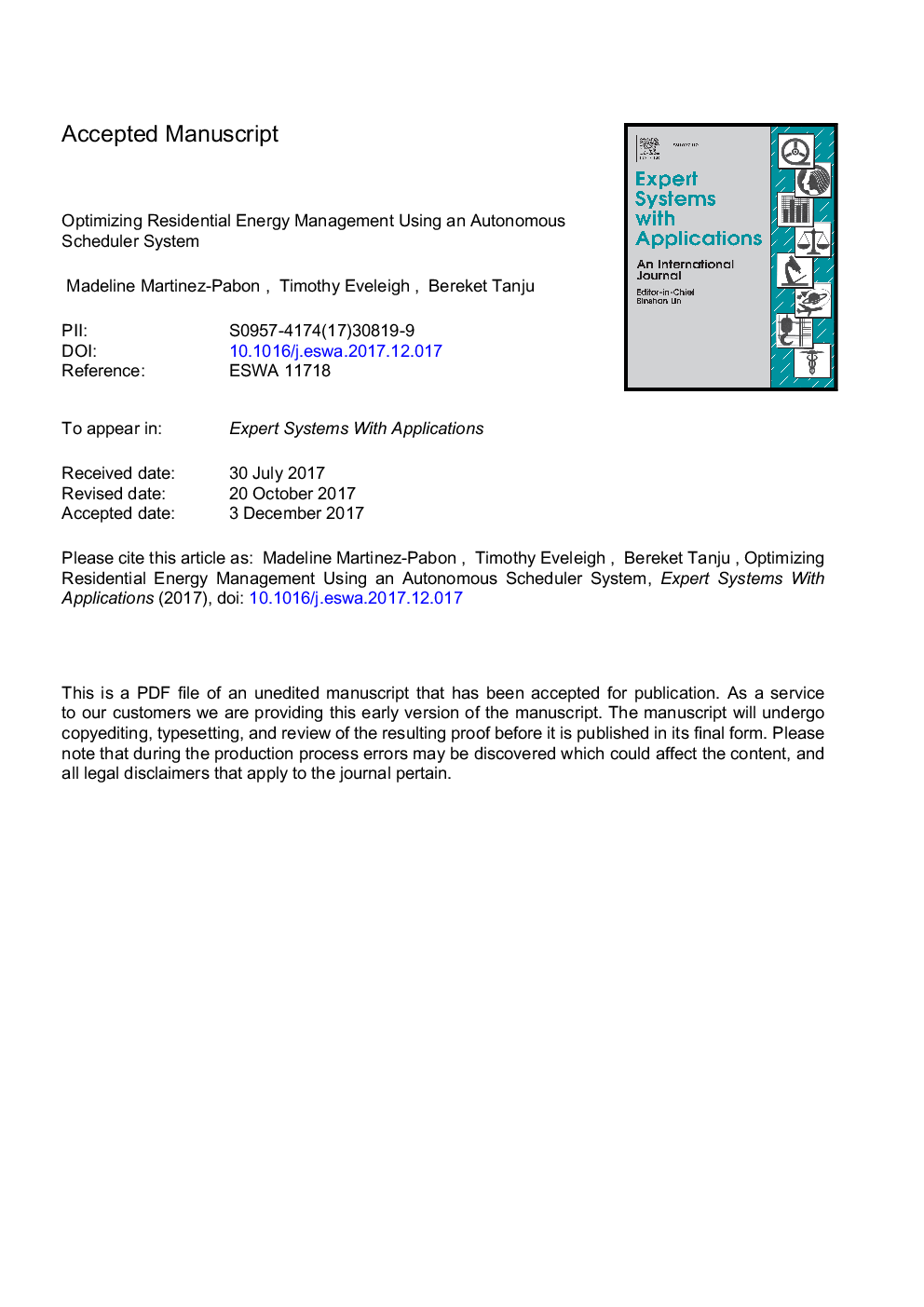| Article ID | Journal | Published Year | Pages | File Type |
|---|---|---|---|---|
| 6855263 | Expert Systems with Applications | 2018 | 22 Pages |
Abstract
In this paper, a smart home energy management system (SHEMS) is developed using a limited memory algorithm for bound constrained problems known as L-BFGS-B, along with time-of-use (ToU) pricing to optimize appliance scheduling in a 24-h period. The allocation of energy resources for each appliance is coordinated by a smart controllable load (SCL) device embedded in the household's smart meter. SCL guarantees automation of the proposed SHEMS and prevents manual participation of customers in demand response (DR) programs. The model is simulated on a population of 247 residential prosumers with solar PV systems based on 15-min interval electric load data from a residential community in Austin, TX. After clustering households based on their electricity profiles, the proposed optimization model is performed. Simulation results show that the proposed autonomous scheduling system reduces cumulative energy consumption for customers across the different clusters. In addition, when households are grouped based on their respective category according to the ToU pricing scheme, the simulation reports a notable decrease in total energy consumption, from 65.771â¯kWh to 44.295â¯kWh, as well as a reduction in the cumulative cost of energy, from $6.550 to $4.393 per day. Simulation results confirm that the proposed algorithm effectively improves the operational efficiency of the distribution system, reduces power congestion at key times, and decreases electricity costs for prosumers.
Related Topics
Physical Sciences and Engineering
Computer Science
Artificial Intelligence
Authors
Madeline Martinez-Pabon, Timothy Eveleigh, Bereket Tanju,
